
“I had fantastic teachers.”
When did you start singing? Do you remember that moment?
There was no specific moment, because we always sang at home, even before I joined the choir. My father conducted a boys’ choir just across the street from our house. Usually, this position is for a professional church musician, but the previous choirmaster left and, until a new one arrived, my father conducted the choir. I was seven years old at the time, and I said, “Oh, I’ll join Dad. I’ll see what he’s doing.” So I went there and stayed in the choir.
And when I turned 13 or 14, my voice broke. I realised that it would sound different now. Fortunately, my vocal teacher, who came once a week for private lessons, said, “You’re 14, you’re still singing so high, maybe it’s a countertenor voice.” I wasn’t sure what I wanted to do with my life at the time. But she sent me to a singer who performs as a countertenor. He has been my friend for many years. He said, “Go to Basel. It’s a good place to study countertenor.” That’s how it started.
Your personal path in music, your choice of repertoire — how quickly did you find it?
When I arrived in Basel, I had no knowledge of music theory. It took me a year of intensive ear training and harmony lessons. As a teenager, I listened almost exclusively to pop music. I loved Italo disco and synthesisers, and I still follow some of my childhood heroes. In Basel, it was strange for me to hear the old repertoire, because I knew little about it and felt a bit out of place, even stupid. I thought everyone else knew much more than I did. But I had fantastic teachers. Richard Levitt developed my voice — he is like a father to me, I must say. And then René Jacobs, now a famous conductor, explained interpretation to me very well.

What was this lesson about?
It means asking the question: why do we sing? What is my task? When I stand up and sing a piece by Bach, I have a role to play. So the temptation for young singers is to say, "Oh, I want to sing that." You open the sheet music and sing. But first you need to read what is happening, understand who is speaking, who I am when I sing this, what the purpose of the piece is. Is it religious music? Is it a sermon? Is it to make people cry? Is it a commentary or something like that? A good teacher opens up this new space for thinking.
"To experience something on a deeper level, we cannot use only our intellect."
I read your interview last year, where you say that you don't have to sing right away, that the music has to mature inside the singer.
My teacher said: if you know how to say it, you know how to sing it. So, as a concert singer, I am the equivalent of a theatre actor. Take Bach's St John Passion. There is a moment when Jesus dies and says, "Es ist vollbracht" (it is finished). And then the countertenor or alto singer stands up and sings, "Es ist vollbracht". We say to the audience, "Did you hear what happened? It is finished! This is not death, this is victory!" Both the first and the second are moments of commentary. There is no right or wrong in interpretation. There is something that people will believe or not believe. I am convincing or not. Interpretation depends very much on your personality, on who you are and how you feel about it.
Sometimes at a concert you can hear perfect, beautiful voices, but it doesn't touch you. And sometimes we hear a voice that may not be so beautiful, but it sings in such a way that it captivates, and this is largely due to the fact that interpretation is like fermentation. Today, I am looking at a piece for the first time. I understand who wrote it, where it came from, what the story is, and I think, "I could sing this because I can." And then I come back to it and say, "Last week, I thought it was a good idea. But today I think it's not." So interpretation is constantly adapting, changing and maturing. The bad thing is that in 10 years' time you listen to it and say, "I had no idea what I was doing." You have to accept that interpretation will never end. It will always evolve, but it requires self-work.
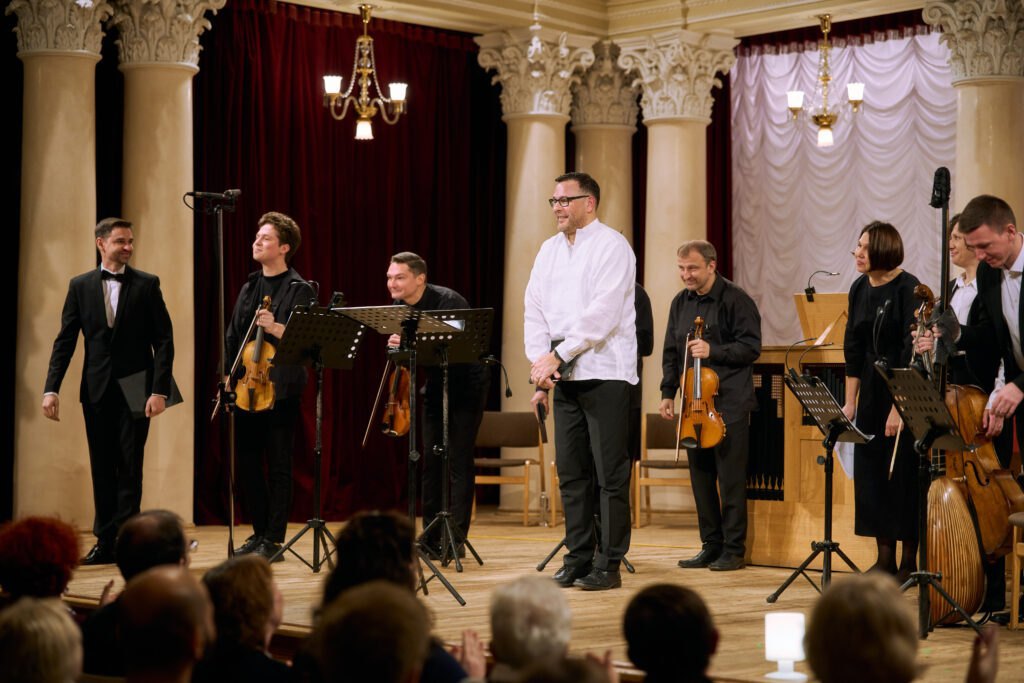
What makes a countertenor unique?
He must perform his role in every song or aria he sings, just like any other singer. There is the meaning of the words, the rhetoric. Again, how can I express it and then dramatise it? But a countertenor has something that other voices do not have: the element of surprise. Because you are performing as a man, and people do not expect you to sing so high. This creates confusion at first.
Once I was at a Christmas party where a professional Christmas storyteller was invited. But before telling the main story, he read complete nonsense, something like: “Last week I went into the forest and heard a voice from a tree. So I climbed the tree, but it turned out that it wasn’t a tree, but a church tower. And then it fell.” And so on in the same vein. And when this introduction ends, the main story begins. That is, we always analyse, but in order to experience something on a deeper level, we cannot use only our intellect. So a nonsensical story confuses the brain, which says that it needs to understand it, but then accepts the story as it is and refuses to analyse it. And then the main story begins.
And then I thought that maybe this is how a countertenor works, about whom you first think, “How is this possible?” And then you just enjoy it. You listen without trying to understand. And maybe that is the effect of a countertenor. Yes, it is an unusual voice, but like any other singer, I have to convey a message, not just reproduce beautiful high notes.
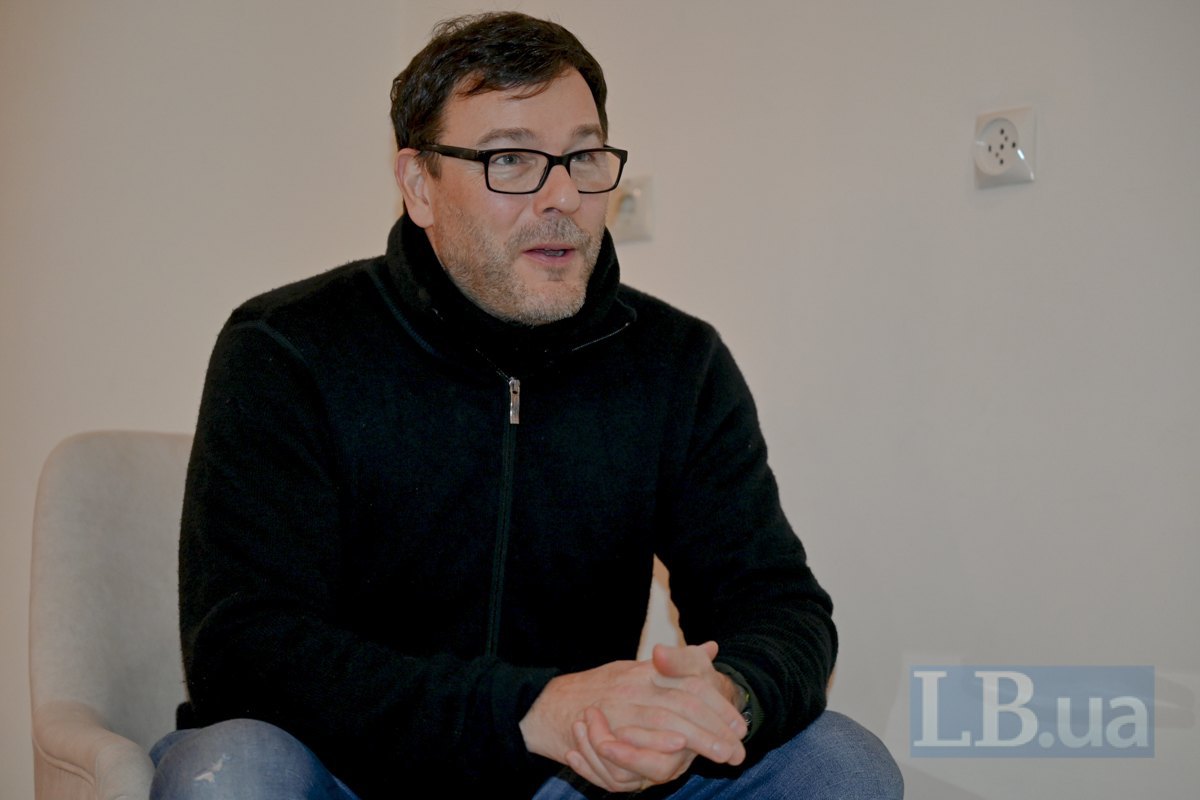
"In classical music, you are the messenger, and in pop music, you are the message."
I know that you perform electronic music, pop music. But for some academic composers or musicians, this is an unacceptable simplification. How do you feel about this?
Yes, it is a simplification, but I think there are two levels: composition and performer. In terms of composition, music has a specific purpose in society. Today, people tend to look for things that set us apart. You don't believe in climate change, and I drive an electric car; you don't sort your rubbish, and I don't fly on holiday. We analyse others and figure out who is different and then we can attack.
At a rock or pop concert, thousands of people stand side by side and raise their hands together. They don't turn around and say, "Before I start dancing and singing with you, tell me which party you vote for." We agree and say that Sting is wonderful, we all stand and sing, we discover things that unite us. And at a baroque music concert, we all agree that Bach is the greatest. This unites us.
In the age of social media, humanity is going crazy, attacking things we don't like in others, but we don't see what we like in the first place. Pop music is simpler. It's easier to understand, and a pop song lasts 3 minutes and 30 seconds. It has a chorus and a verse. Two elements, simple harmonies, anyone can sing them. It's like the difference between a comic book and a great novel. But both can be enjoyable and serve their purpose.
What do you like most about pop music?
The creative process. I like coming up with the melody, harmony and lyrics. Then recording in the studio, microphones, then I mix it, get a small piece of music, and that's my song. I have a 10-year-old daughter, so I listened to a lot of new pop music that I don't like at all.
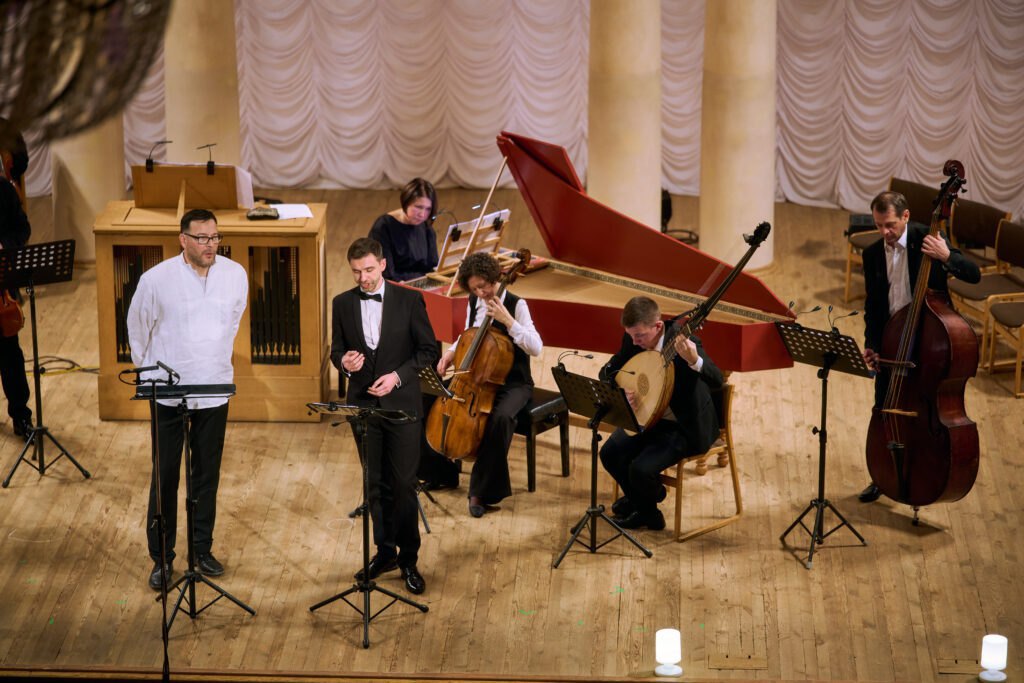
So which era interests you more?
I am a child of the 1980s. If you listen to music from the 1980s, you can find variety in pop songs with a two-minute intro. Two minutes of guitar before you hear the singing voice. Today, you have five seconds for that. In short, you can find creativity and be original in pop music. Yes, I can criticise the composition, but creating something that millions of people listen to commands respect.
And the second aspect is, again, the performer. My teacher said, "In classical music, you are the messenger. In pop music, you are the message." For example, people come to listen to Sting. They don't come to listen to Sting's songs performed by someone else. The most authentic way to sing is when you sing a song you wrote yourself. Great songwriters like Billy Joel and Elton John sit at the piano and tell stories — and everything they do is authentic because it's them. But when someone sings other people's songs, interpretation is necessary.
I have to say that performing on the pop scene is not easy. I once asked my Israeli pop singer friend Idan Raichel, "Are you nervous?" He replied, "Why should I be nervous? I'm singing my own songs." Classical music demands perfection. But at a pop concert, you can sing a note that's not 100% perfect, and no one cares. Because people are looking for something else, not technical perfection.
"If we in the West unite, Russia will go bankrupt."
Last year, you visited Ukraine for the first time. Were you afraid to come here?
Yes, of course. I heard that there were attacks on Kyiv, and I was a little nervous about it. But I had to balance that out. I made my decision when the war started. Tetyana, my student in Salzburg, is from Ukraine herself. She organised a charity concert with her husband and asked me if I wanted to participate. So, in Salzburg, in the big cathedral, we performed Pergolesi's Stabat Mater in support of Ukraine. And then I received a message from Ukrainian countertenor Roman Melish, and I understood how desperate he was. I have known him for many years; we took lessons together. So I wrote that I teach and give concerts, so if a concert or master class is needed, I will come and do it.
It took a year for this to happen. And last year, here in Kyiv, I truly felt the political power of art. I saw how people reacted to the music, what it gave them. It works on many levels. Music gives something to our hearts and souls, calms us down, and we can say, "Thank you for distracting us from the war." That's one level. The next level is, "We are not alone." People come with performances — and that's a sign of solidarity.
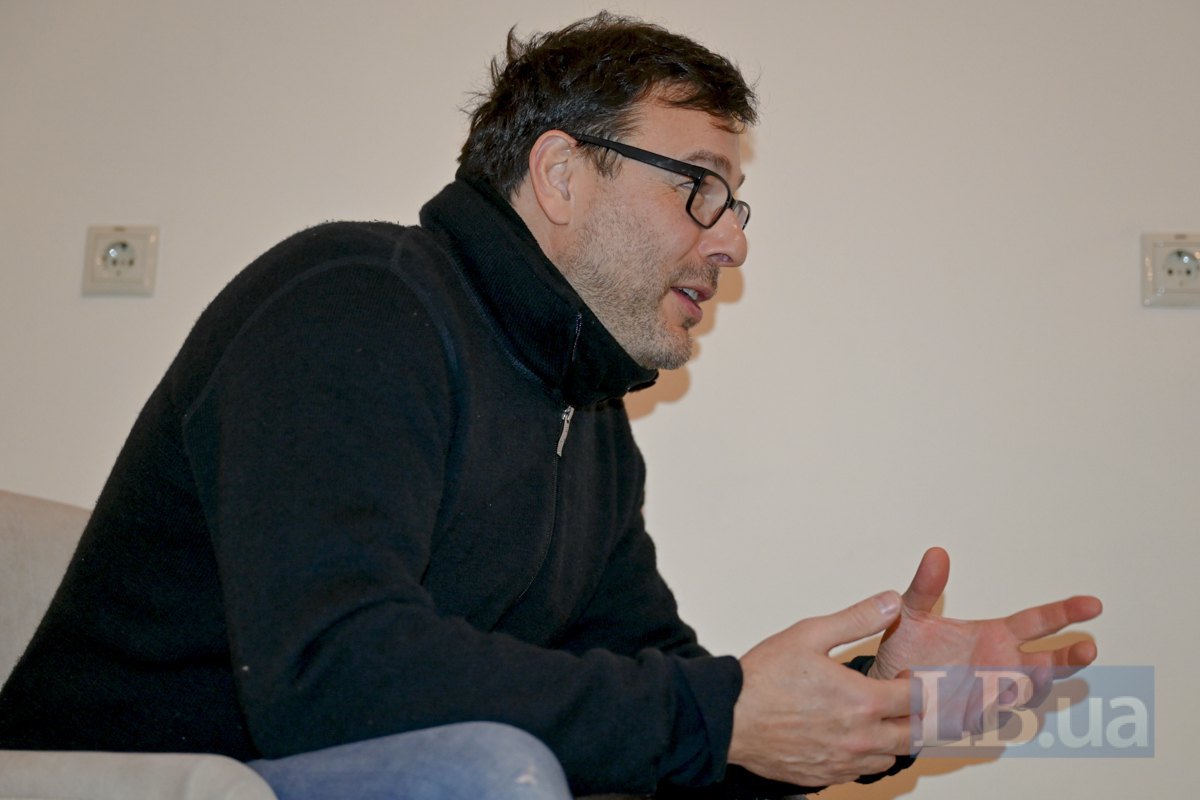
And what is public opinion in Germany regarding Ukraine at the moment, from what you can see?
Most people understand what is happening. You don't need to be a rocket scientist to figure that out. There is a minority who say, "We must stop giving weapons to Ukraine." I respond, "It's easy for you to say that because it's not your freedom and your self-determination at stake." Putin repeats, "Ukraine will always belong to Russia." That is his very clear goal. But Ukrainians stand their ground: "No, we will decide for ourselves how we live." I can't imagine what it's like to feel such a threat. My father-in-law from Israel was a paratrooper doctor in two wars, and if they had lost, Israel would have disappeared. So there is an urgent need to do something, and I can offer what I know how to do.
I heard from Roman that people are morally exhausted by the war. But I am an optimist. I read somewhere that Russia's economic power is roughly equal to that of Spain at the moment. So if we in the West unite, Russia will go bankrupt. They cannot afford to continue the war. If there are sufficient economic sanctions and the lives of Russians become miserable, they will say that perhaps Putin is not such a great leader after all.
I follow a YouTube channel called Russian Media Monitors, run by American journalist Julia Davis. It is a digest of excerpts from Russian state television talk shows with English subtitles. It is pure brainwashing. It is madness. When the war started, I thought, "Hey, it will be over in a week because there will be mass protests against it in Moscow." I was naive. The Russian population supports the war, perhaps because they have not received the correct information and live in a bubble where they consider themselves a world superpower. But apart from natural resources, Russia has nothing — no car, electronics or biotechnology manufacturers. What does this country offer the world apart from gas and oil?
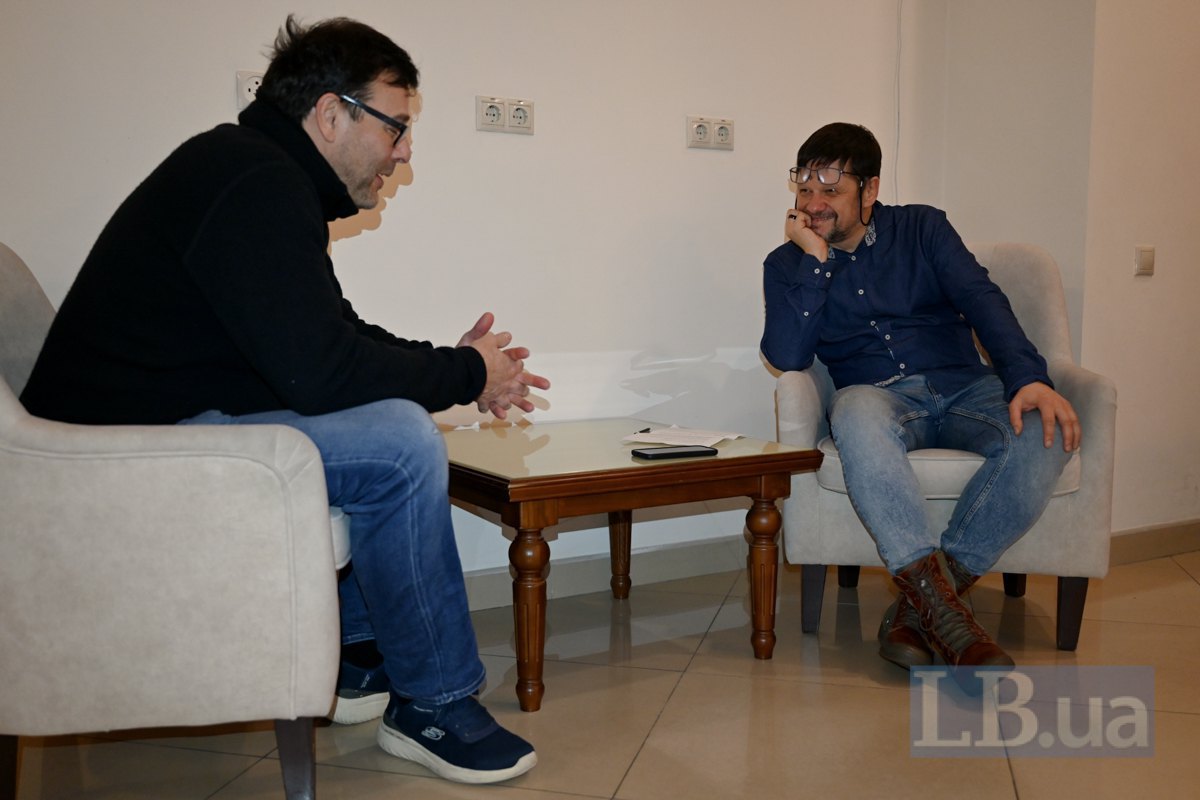
Do you think they can be pressured through the economy?
I am sure that financial and economic collapse will be key. Ukraine has attacked many oil refineries, and Russians have to queue up to fill up their cars. And maybe in those queues they say: "We are making progress. The three-day invasion is going so well. But I can't fill up my car." Maybe that makes them think. I don't know.
"In Germany, social media algorithms send out fake news every day that Zelensky's wife bought a Bugatti Veyron or that Zelensky bought Joseph Goebbels' villa."
Was it difficult to give up your Russian audience?
I wrote a short essay about whether we should boycott Russian musicians. Many Western musicians do not take a clear position. I was invited to sing in Moscow about a year ago. I refused. It's not good for my career in Russia, but it would be cynical to condemn this war and at the same time give concerts in Russia. I admit, I had wonderful concerts in Moscow and St. Petersburg, with a knowledgeable audience. And I was very disappointed when I saw that no one was protesting.
I looked through all the quotes from Lavrov, Putin, Peskov, all the politicians. They needed a reason. At first it was something like, "Oh, we need to liberate Ukraine from the Nazis." And then they said, "No, it's about NATO expansion." They all sent their children to Britain and the United States, but they say that the West is bad and decadent. So I think most Germans look at this and understand that there is a conflict of values. There is a free society and there is a dictatorship. But the bot campaign, the propaganda campaign, has had some success in Germany.
Why?
Because every day, social media algorithms send out fake news stories about Zelensky's wife buying a Bugatti Veyron for two million pounds in London. Or that Zelensky bought Joseph Goebbels' villa. Someone is sitting there sending this out a million times, and there are those who want to believe it. It's a propaganda machine. Some people, if you read the comments, say, "Hey, Ukrainians, there's no point in resisting. You can't win." And the next sentence will be, "Submit, accept that this is no longer your country." It's a propaganda war, and lies are in its nature. Like a newspaper that publishes a false story with a huge headline and then writes a small retraction a month later. That's the principle that's being used.
The German right wing from the AfD party used to be big fans of Putin. Now there is a split. A small delegation of completely insignificant politicians from this party went to Moscow. They don't represent anyone, but they feel important. Overall, I think people know what's going on.

"If the situation calms down, I would love to come with my wife and daughter."
Let's talk about something more pleasant — your concert at the Kyiv Philharmonic. Why these composers, this music?
I suggested Henry Purcell because he wrote specifically for countertenors. For example, many of Handel's opera parts were performed by castrati. I can sing them, but they were not written for a countertenor. Purcell has a lot of countertenor repertoire, including wonderful countertenor duets, so I decided that I could do them together with Roman [Melish]. And then the orchestra said, "We also want to perform some Bach." So we added a Bach cantata.
What about the future? What would you like to sing in Ukraine during your next visit?
Oh, there's a lot! If the situation calms down, I would love to come with my wife and daughter. My wife is a pianist and harpsichordist, so we could do programmes with piano or harpsichord. Or with lutenist Edin Karamazov, my best musical friend, we could perform John Dowland's lute songs with the orchestra. We could also realise many ideas with a beautiful Ukrainian soprano and your orchestra.
"It is important that there is someone at the top throughout the centuries, from king to president, who cares about art and music."
I know you are not a music historian. But I would like to hear the opinion of someone who lives in Germany: why does your land, your country, produce so much great music? What is the secret?
I don't have a comprehensive explanation, but I think that in every country where education and culture play a certain role, there must be a consensus from the top down. Frederick II, who played the flute, or Chancellor Helmut Schmidt, who was an excellent pianist... It is important that there is someone at the top throughout the centuries, from king to president, who cares about art and music. And we return to the beginning of our conversation. The fact that everyone experiences music together, that children sing, dance and play music at school, is also a determining factor. When there are enough children exposed to music in the education programme, more of them will pursue music professionally, and you are statistically more likely to have great composers, right? That's my theory, I don't know.

The last question is partly related to this, although it is more philosophical. Can art influence humanity, make it better?
Yes, absolutely. That is the goal of artists today. We need to be socially relevant. It cannot be purely entertainment. I said that music works on collective experience, it can work on different levels. We turn on the radio when we feel stressed, listen to a good pop song — and our mood changes. So, a little song gave us a three-minute time-out and a positive impulse. Or there are films like Schindler's List, and that's not entertainment anymore, it makes you think. We watch a Greek tragedy and think: poor queen, what is she doing, she wants to kill herself — and it makes us think about our humanity, about the choices we make in opera, in theatre, or in books.
It's a transformation in the community. Many years ago, I imagined the Earth in space. And everywhere the concert ends, there is a small flash of light. You know, people leave the concert hall, the exhibition, the cinema, and it's like a neural network. There is always a small flash of light when people leave, saying, "Oh, what a wonderful film," or still singing the music from a pop concert. And the next day, they pass this impulse on to their friends.
So art creates positive energy, and bombs are dark moments. It may sound pompous, but in the end, it's a battle between darkness and light. Art, music, theatre, dance, sculpture — they are on the side of light. It creates impulses that make us think. It gives us a time-out when we can maintain balance in the world. If we lose culture and art, we will kill ourselves. I think the importance of art in society is underestimated. During the coronavirus pandemic, we had systemic relevance. Nurses, doctors, firefighters, police officers, but also musicians and artists are systemically relevant.
The relevance of art lies in the fact that firefighters and nurses must learn not only their profession, but also why it is important to help other people. Where does this come from? From reading a novel, when I want to be like the hero. From watching a film. It is not so noticeable in the short term. Yes, you can say that I studied nursing for four years and now I can help people. But an arts education takes a whole generation, from the moment a child starts school until they graduate. And that's a long time in politics. You can't win an election by saying that if we invest in education now, in 20 years we'll save money on prisons, psychotherapy and many other things. If only politicians understood this...
But there are places where culture has a higher value, where I feel when I sing at a concert that people go there not only for entertainment, but that it is like food for them. And that's nice to see.









